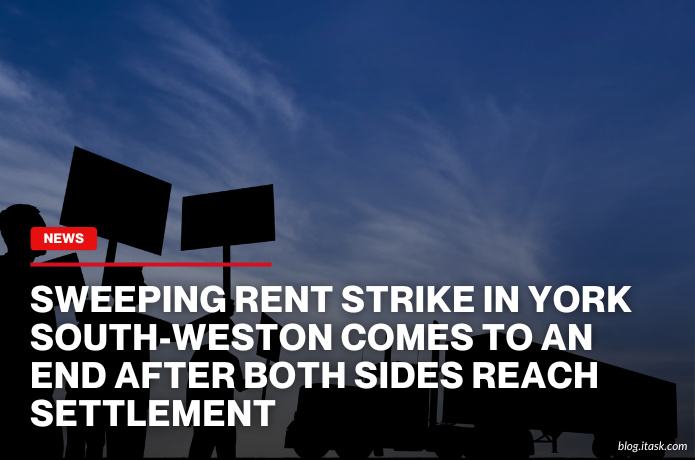Sweeping rent strike in York South-Weston comes to an end after both sides reach settlement
Sweeping rent strike in York South-Weston comes to an end after both sides reach settlement

After 16 months of protests, negotiations, and withheld rent, the rent strike in Toronto's York South-Weston neighborhood has concluded. The dispute, involving tenants at 33 King Street and 22 John Street, centred on dissatisfaction with above-guideline rent increases and persistent maintenance issues. Organized by the York South-Weston Tenant Union, the strike marks a significant moment in Toronto’s growing tenant advocacy movement.
The settlement between the tenants and their landlord, Dream Unlimited, was confirmed on October 31. Both parties described the agreement as "amicable," though the specific terms remain confidential. Chiara Padovani, founder of the tenant union, credited collective action for the resolution, calling it a testament to the power of tenant organizing. A Dream spokesperson also expressed satisfaction with the outcome but refrained from sharing further details about the deal.
This strike followed years of mounting frustration. Residents had faced repeated above-guideline rent increase applications—six in a decade under the previous owner—and hoped for relief when Dream took over the properties in 2021. However, Dream maintained the applications, seeking special permissions to raise rents above Ontario’s standard 2.5% cap for 2024. Complaints about disrepair, including pest infestations and structural issues, further fueled tenant dissatisfaction.
The strike is part of a broader trend in Toronto, where escalating rents and housing affordability issues have spurred tenant-led actions. Similar strikes are ongoing in other parts of the city, highlighting growing resistance to rent hikes and poor housing conditions. Advocates see this resolution as a potential catalyst for more organized tenant movements in urban centers across Canada.
Despite the end of the strike, challenges remain. Other tenant groups, including those in nearby buildings also owned by Dream, continue their campaigns against disrepair and rent increases. However, the success of the York South-Weston tenants may inspire greater confidence among renters to stand up for their rights.
Tenant groups hope this outcome sets a precedent, demonstrating the efficacy of collective action. As cities like Toronto face intensifying housing crises, the York South-Weston rent strike may symbolize a shift in the balance of power between landlords and renters in Canada's urban landscape.
